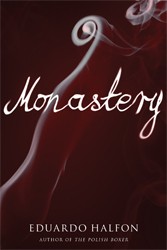Rubin, a formerly secular American, lives in Shiloh, Samaria in the “Biblical heartland of Israel.” Now observant, he expresses the concerns of many West Bank settlers. Shiloh, the site of ancient Israel’s capital, is a symbol of religion and nationalism for him. He associates the area with the Tabernacle, Joshua, Eli, Hannah, and Samuel. Bible study and personal experience of terrorism have convinced him that Jews must not return the land promised by God and that the restoration of Shiloh is a factor in the redemptive process.
Rubin faults modern Israel for materialism, hedonism, and political corruption. He attacks the state for yielding to U.S. pressure and showing weakness to Arab opponents by one-sided withdrawals and disengagements. Rubin rejects fears of a rapidly increasing Arab population; he points out that in the West Bank, the Jewish birth rate is higher than that of the Arabs. A community activist, the author has established a fund to support educational, recreational, and therapeutic projects in the Shiloh area.
Rubin argues clearly and eloquently. However, some of his rhetoric is abhorrent. He writes of “the violent destructive falsehood that is Islam.” He also charges, without offering proof, that Prime Minister Ariel Sharon was bribed to change his position on the settlements.





